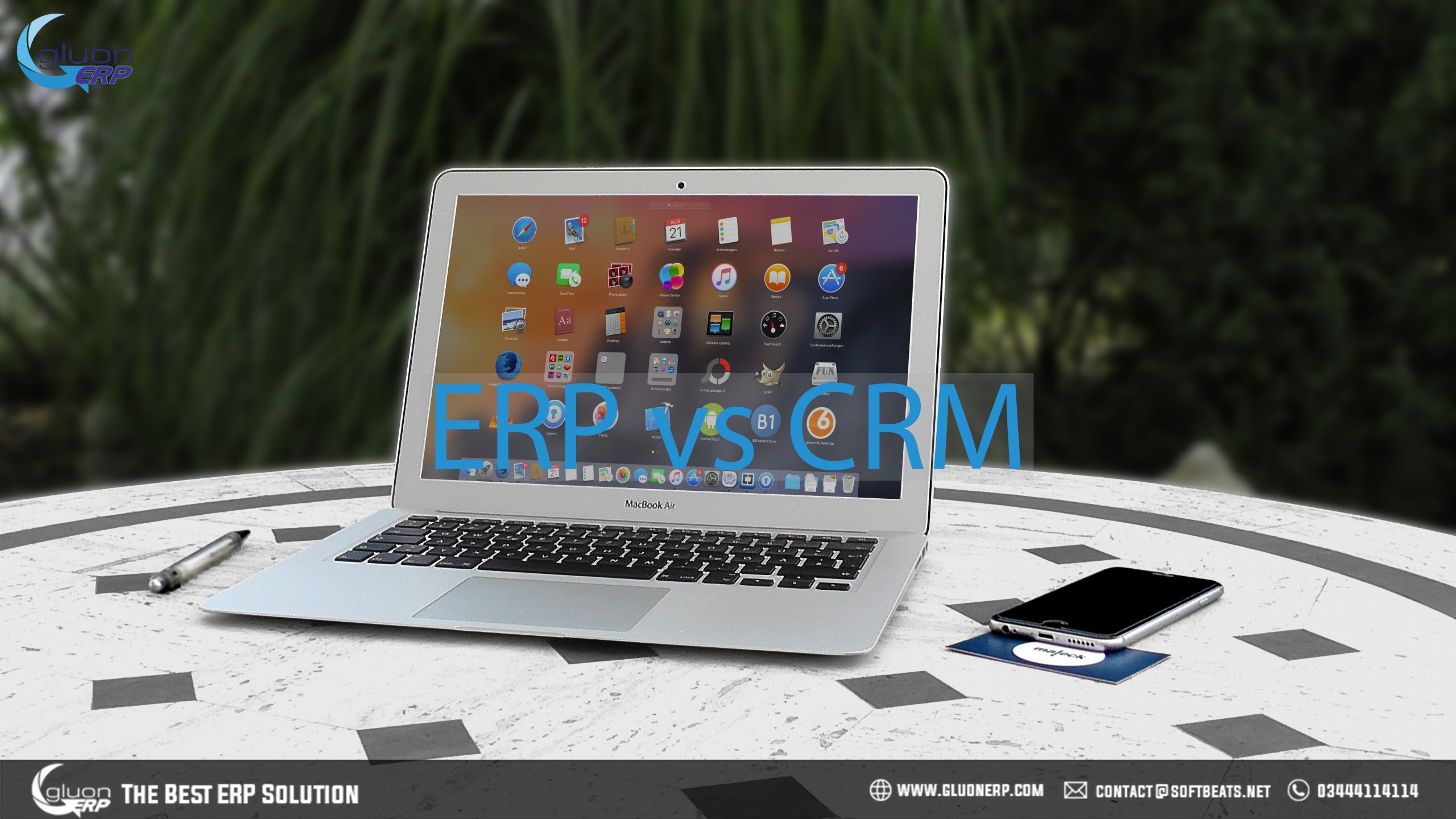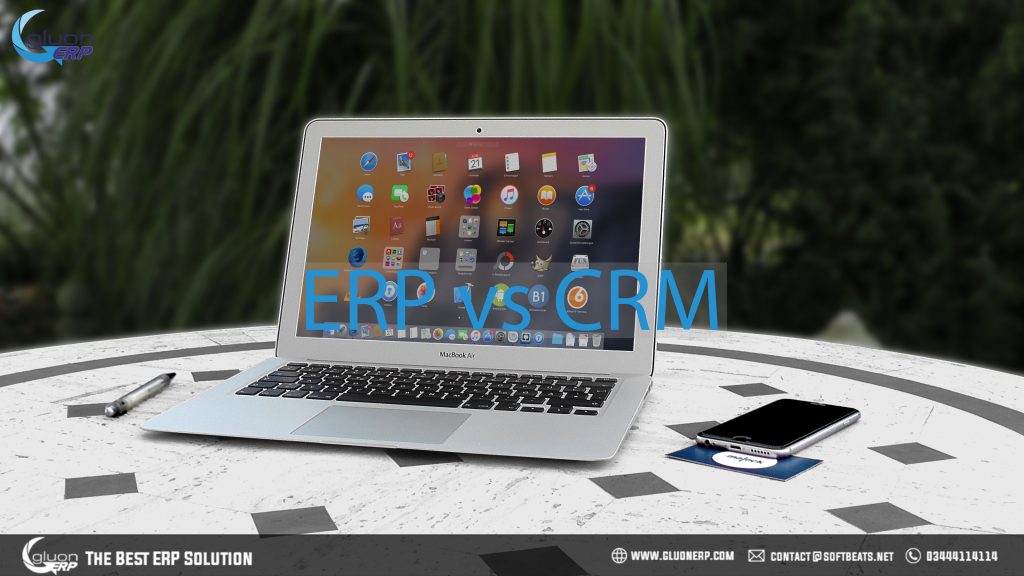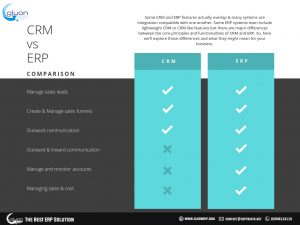
ERP vs CRM
What is the difference between ERP and CRM is a question a lot of the management is heard asking each other. ERP vs CRM is a debate a lot of the upper management faces. We will be discussing the main differences and similarities between the two, Enterprise Resource Planning and Customer Relationship Management. Here we’re going to take a quick look at the differences between two extremely popular types of business software CRM and ERP. Now, both CRM and ERP offer powerful tools to boost your organization’s profitability. Some CRM and ERP features actually overlap and many systems are integration compatible with one another. Some ERP systems even include lightweight CRM or CRM-like features but there are major differences between the core functionalities of the two. So, here we’ll explore those differences and what they might mean for your business.
Differences between ERP and CRM (ERP vs CRM)
As the abbreviation goes, CRM stands for customer relationship management. Which means it is specifically designed to increase sales from both new and repeat customers. it is also designed to improve customer relationships by enabling you to create a high-quality experience for both customers and prospects. Basically CRM is about improving your ability to connect with prospects and then ensuring timely, reliable, consistent and quality service, as those prospects become customers. Better customer relationships create loyal customers and loyal customers increase your long term profitability. So, to put simply, CRM gazes outward to where your team interacts with customers and prospects and CRM is therefore especially useful to your sales support and marketing teams a well. Well executed CRM systems can help your team improve response time, pursue new leads and opportunities. It also helps effectively automate communications, evaluate and iterate marketing campaigns. Along with that it standardizes and streamlines the sales process, analyzes customer interactions and purchasing patterns. CRM also facilitates consistent high-quality customer support and automate repetitive tasks.


So, what is ERP, ERP stands for enterprise resource planning. It is designed to improve the efficiency of your business processes, reduce overheads and cut costs efficiently. But, while CRM focuses on prospect and customer interactions ERP focuses on all aspects of your business, and while CRM focuses on boosting sales, ERP focuses on reducing costs by increasing visibility and streamlining processes. So, whereas CRM gazes outward, ERP gazes inward at what your team is doing and how efficiently they’re doing it. ERP can, therefore, benefit all divisions in your enterprise. Properly utilized ERP can help your team enter and track real-time business process information within and across all departments. It can alert team members when issues elsewhere in the company might affect them and can help you plan department and enterprise-level strategies based on enterprise-wide knowledge. It can help you process orders, update accounts and trigger automatic alerts to fulfil and build those orders. ERP can help you manage manufacturing and supply chains while creating records and alerts at every step in the process. It can assist you to track recruiting and hiring initiatives and it can help you manage payroll benefits and personal information for your employees. So the big question for most businesses becomes, CRM or ERP? If you’re choosing between the two there are three main factors to consider, 1) Needs 2) Investment and 3) Scale, there are a lot of similarities between CRM and ERP but each serves different. CRM is built to boost raw sales numbers while ERP is built to reduce the cost of each sale. CRM systems also tend to be much cheaper than ERP systems. So while neither is a small investment ERP is typically a much larger investment and finally both systems scale very differently. CRM tends to provide proportionally greater benefits to small and medium-sized businesses with room to grow and forge a boost to raw sales numbers and can be a big-time boon. ERP, on the other hand, provides proportionately greater benefits to large and complex organizations. For which a cost-cutting and efficiency-driven system can scale well enough to provide potentially huge returns on your investment. Of course, those larger organizations aren’t likely to turn their noses up at increased sales. So, many organizations use an integrated CRM and ERP system and the good news is even if your business isn’t ready to take full advantage of the air-up here. You can always start with CRM and then integrate with a compatible ERP when you’re ready. For example, Gluon ERP for sales which is a CRM system integrates seamlessly with Gluon ERP system. You can do so years down the road to grow into the need and spread out both your risk and your investment. So, ERP vs CRM, which one is suitable for your organization?






Comments